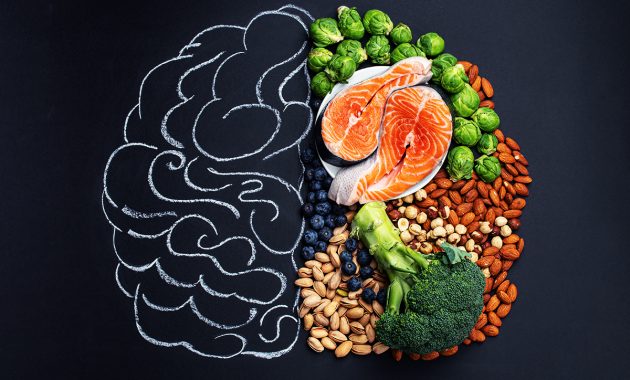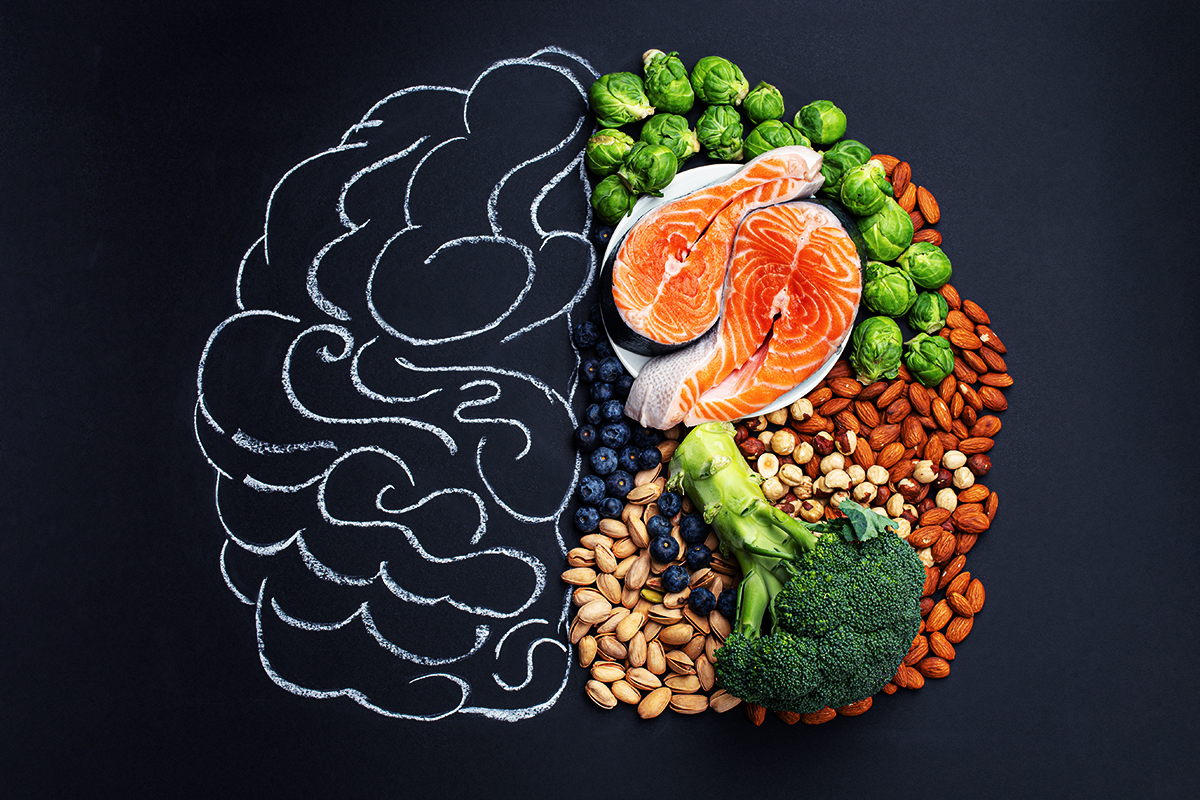
How to Improve Focus and Energy With a Diabetes Diet: A Comprehensive Guide
The modern world demands peak performance. We juggle careers, family, and personal pursuits. This constant activity requires significant mental and physical energy. For individuals managing diabetes, maintaining this energy and focus presents unique challenges. Fluctuating blood sugar levels can significantly impact cognitive function and overall well-being. This article explores how a well-structured diabetes diet can be a powerful tool. It helps to enhance focus and energy levels. We’ll delve into the science, practical strategies, and lifestyle adjustments. These are all crucial for optimizing both mental and physical performance. The information provided is based on the latest research and expert recommendations.
Understanding the Link Between Diabetes, Focus, and Energy
Diabetes, in its various forms, fundamentally affects how the body processes glucose. Glucose, derived from the food we eat, is the primary fuel source for our cells. When blood sugar levels are poorly managed, the brain and body suffer. High blood sugar (hyperglycemia) can lead to brain fog, fatigue, and difficulty concentrating. Low blood sugar (hypoglycemia) can cause confusion, dizziness, and even loss of consciousness. Both extremes disrupt the intricate balance needed for optimal cognitive function and energy production. A diabetes diet serves as a foundation. It helps to regulate blood sugar and mitigate these negative effects.
The impact isn’t limited to immediate symptoms. Chronic fluctuations in blood sugar can contribute to long-term complications. These complications include cardiovascular disease and nerve damage. These conditions can further exacerbate fatigue and cognitive decline. Therefore, managing diabetes isn’t just about blood sugar levels. It’s about overall health and well-being. The right dietary approach empowers individuals to take control. They can improve their focus and energy levels, and protect their long-term health.
The Core Principles of a Diabetes Diet for Focus and Energy
A diabetes diet is not a one-size-fits-all approach. It needs to be individualized. It is based on individual needs and preferences. However, certain core principles are universally beneficial for blood sugar control, focus, and energy. These principles form the cornerstone of a successful dietary strategy.
Prioritizing Carbohydrate Management
Carbohydrates have the most significant impact on blood sugar levels. Therefore, careful carbohydrate management is essential. This involves understanding the glycemic index (GI) and glycemic load (GL) of different foods. The GI measures how quickly a food raises blood sugar. The GL considers both the GI and the amount of carbohydrates in a serving. Choosing low-GI and low-GL foods is key. These foods cause a slower, more gradual rise in blood sugar. This helps to prevent energy crashes and maintain focus.
Examples of beneficial carbohydrate choices include:
- Non-starchy vegetables (e.g., leafy greens, broccoli, peppers)
- Whole grains (e.g., quinoa, brown rice, oats)
- Legumes (e.g., beans, lentils)
- Fruits (in moderation, focusing on lower-GI options like berries)
It’s equally important to limit refined carbohydrates (e.g., white bread, pastries, sugary drinks). These foods cause rapid blood sugar spikes. This is followed by a sharp decline, leading to fatigue and difficulty concentrating.
Embracing Healthy Fats
Healthy fats play a crucial role in energy production and brain function. They also contribute to satiety. This can help prevent overeating and maintain stable blood sugar levels. Good sources of healthy fats include:
- Avocados
- Nuts and seeds (e.g., almonds, chia seeds, flaxseeds)
- Olive oil
- Fatty fish (e.g., salmon, mackerel, sardines)
It is crucial to limit saturated and trans fats. These fats can worsen insulin resistance and increase the risk of heart disease.
Protein Power for Sustained Energy
Protein is essential for building and repairing tissues. It also helps to slow down the absorption of glucose. This contributes to more stable blood sugar levels. Including protein with every meal and snack is a good practice. This helps to promote satiety and sustained energy. Good sources of protein include:
- Lean meats (e.g., chicken, turkey, fish)
- Eggs
- Dairy products (in moderation, if tolerated)
- Plant-based protein sources (e.g., tofu, tempeh, lentils, beans)
Fiber’s Role in Blood Sugar Control
Fiber, particularly soluble fiber, slows down the absorption of glucose. This helps to prevent blood sugar spikes. Fiber also promotes gut health and satiety. This can contribute to better overall health. Good sources of fiber include:
- Fruits and vegetables (especially those with the skin on)
- Whole grains
- Legumes
- Nuts and seeds
Meal Planning Strategies for Peak Performance
Creating a meal plan that supports focus and energy requires careful planning. It also requires consistency. Here are some practical tips to help you get started:
Portion Control
Pay close attention to portion sizes. Overeating, even healthy foods, can lead to blood sugar fluctuations. Use measuring cups and spoons to ensure accurate portion sizes. Be mindful of hunger and fullness cues. This will help prevent overeating.
Meal Timing and Frequency
Eating regular meals and snacks throughout the day helps to maintain stable blood sugar levels. This helps to prevent energy crashes. Aim to eat every three to four hours. This should include a balance of carbohydrates, protein, and healthy fats. Avoid skipping meals. This can lead to overeating later in the day.
Smart Snacking
Keep healthy snacks readily available. This will help to prevent hunger and blood sugar dips. Good snack options include:
- A handful of nuts and seeds
- A small portion of fruit with a few almonds
- Vegetable sticks with hummus
- A hard-boiled egg
Hydration is Key
Dehydration can exacerbate fatigue and impair cognitive function. Drink plenty of water throughout the day. Aim for at least eight glasses of water. You can also include herbal teas, and unsweetened beverages.
Recipe Ideas
Here are some simple recipe ideas that are both delicious and diabetes-friendly:
- Breakfast: Oatmeal with berries and nuts, or scrambled eggs with vegetables.
- Lunch: Salad with grilled chicken or fish, or a lentil soup with whole-grain bread.
- Dinner: Baked salmon with roasted vegetables, or chicken stir-fry with brown rice.
- Snacks: Apple slices with peanut butter, or a small handful of almonds.
Lifestyle Factors That Complement a Diabetes Diet
While a diabetes diet is the cornerstone of managing blood sugar and improving focus and energy, other lifestyle factors play a significant role. These factors work synergistically with the diet to optimize overall health and well-being.
Regular Physical Activity
Exercise improves insulin sensitivity. It also helps to lower blood sugar levels. Aim for at least 150 minutes of moderate-intensity aerobic exercise per week. Include strength training exercises at least two days per week. Choose activities you enjoy. This will help you stick to a regular exercise routine.
Stress Management Techniques
Stress can raise blood sugar levels. It can also impair cognitive function. Practice stress-reducing techniques such as:
- Meditation
- Yoga
- Deep breathing exercises
- Spending time in nature
Adequate Sleep
Lack of sleep can disrupt blood sugar control. It can also impair cognitive function. Aim for seven to nine hours of quality sleep per night. Establish a regular sleep schedule. Create a relaxing bedtime routine. This will help improve sleep quality.
Regular Blood Sugar Monitoring
Regular blood sugar monitoring is essential for understanding how your body responds to food, exercise, and stress. This information is crucial for making informed dietary and lifestyle adjustments. Work with your healthcare team to determine the appropriate monitoring schedule for you.
Consulting with Healthcare Professionals
Making significant dietary changes requires guidance from qualified healthcare professionals. Always consult with your doctor, a registered dietitian, or a certified diabetes educator before making any changes to your diet or treatment plan. They can help you create an individualized plan that meets your specific needs and goals. They will also ensure the safety of your choices. They can also monitor your progress and make any necessary adjustments along the way.
The Long-Term Benefits of a Diabetes Diet for Focus and Energy
Adopting a well-structured diabetes diet is an investment in your long-term health and well-being. It goes beyond simply controlling blood sugar levels. It offers a multitude of benefits. These benefits include:
- Improved Cognitive Function: Stable blood sugar levels support optimal brain function. This can lead to improved focus, memory, and concentration.
- Increased Energy Levels: By preventing energy crashes and providing a consistent supply of fuel, a diabetes diet can help you feel more energized throughout the day.
- Reduced Risk of Complications: Managing blood sugar through diet can significantly reduce the risk of long-term complications associated with diabetes, such as heart disease, nerve damage, and kidney disease.
- Enhanced Mood and Well-being: A healthy diet can positively impact your mood and overall sense of well-being. This can help improve your quality of life.
- Better Sleep Quality: Proper nutrition supports healthy sleep patterns. This leads to improved energy and focus.
Conclusion: Taking Control of Your Health
Managing diabetes and optimizing focus and energy is achievable. It requires a proactive approach. A well-structured diabetes diet is a cornerstone of this approach. By focusing on carbohydrate management, healthy fats, protein, and fiber, you can regulate blood sugar levels, improve cognitive function, and boost your energy levels. Remember to incorporate regular physical activity, stress management techniques, and adequate sleep. Always consult with healthcare professionals for personalized guidance. By embracing these strategies, you can take control of your health. You can live a more vibrant, focused, and energetic life. This is even possible while managing diabetes.
This comprehensive guide provides valuable insights into how to improve focus and energy with a diabetes diet. By following the principles outlined in this article, individuals with diabetes can significantly enhance their quality of life. They can achieve optimal health and well-being. The key is to make informed choices, stay consistent, and seek professional guidance.
[See also: Related Article Titles]

